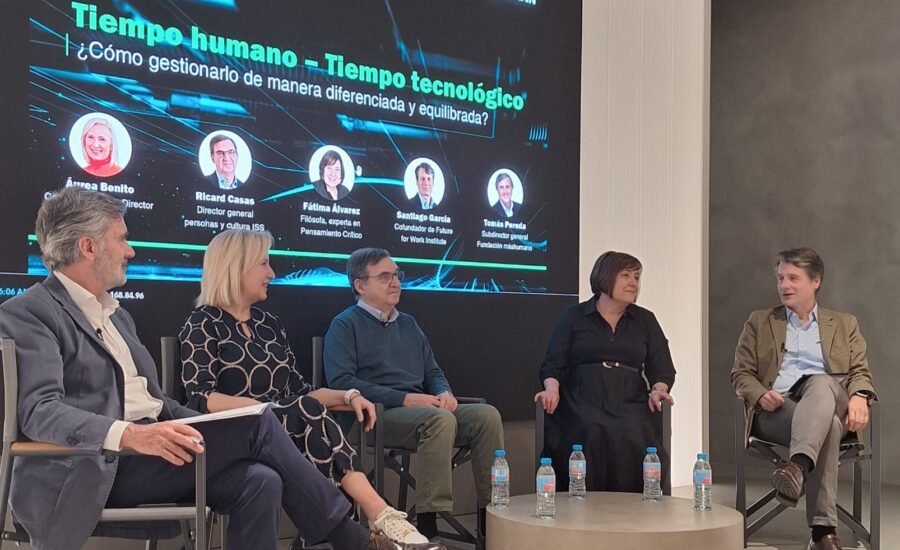We live in times where speed has become the norm. Where the urgent systematically displaces the important. Where decisions are made with data, but without pause. And where, paradoxically, talking about human time begins to sound almost nostalgic.
In this context, participating in events that invite you to stop, think deeply and talk without haste is rare. That is why the experience of the meeting held at Casa ISDIN, and organized by Fundación máshumano, under the title “Human Time, Technological Time”, was so valuable. A space for courageous reflection, well moderated and full of uncomfortable but necessary ideas.
The tension between two times
One of the big questions of the event was: How do we preserve our humanity in an environment increasingly dominated by the logic of technological acceleration?
We live in a constant tension between two rhythms: that of humans, marked by biology, reflection, leisurely learning… and technology, which advances exponentially, automates decisions and redefines relationships. It is no longer clear where one ends and the other begins.
It’s not the technology, it’s how we use it
One of the clearest reflections was that technology is not the problem. What is worrying is the use we make of it.
Instead of being tools that amplify our capabilities, they often become systems that capture our attention, condition our decisions and erode our autonomy. We are not losing attention: we are losing control over it. And without control over attention, we also lose the ability to anticipate, to judge, and to think deeply.
Critical thinking as an antidote
Several voices agreed that we are overvaluing quick opinion and underestimating criteria. We have more and more opinions, but we think less and less. We react before we understand. And in that process, we run the risk of becoming mere users, rather than critically thinking citizens.
“If we don’t think, we are thought,” said one of the speakers. And it’s a powerful warning. In a world where information is no longer sought after but finds us – and where behind every information impact there are interests, algorithms and biases – recovering the capacity for reflection is not a luxury: it is a form of resistance.
Do we work less, but live better?
Another axis of the debate revolved around the concept of progress. We have reduced working hours, multiplied connectivity, improved productivity… but are we really happier?
Perhaps the time has come to redefine what we mean by progress. Is it just growth, efficiency and permanent availability? Or should it incorporate well-being, quality human relationships and meaning into what we do?
A necessary conversation
Amid so much immediacy, the event was a reminder that thinking is still important. That we need spaces where not only digital transformation is discussed, but also human transformation. And that rethinking time—how we use it, what it demands of us, and what it gives us back—is key to building healthier organizations and societies.
Thanks to Aurea Benito, Fátima Álvarez, Tomás Pereda Riaza, Ricard Casas and the excellent moderator Santiago García, for putting on the table questions that are not answered with data, but with criteria, conversation and awareness.














Thinking of trying this one, philslotregister. So easy to sign up. Seems legit! Who knows, baka swertehin! philslotregister
Been playing at vn69casino for a couple of months now. Their live casino is pretty good, decent dealers, and the streams don’t lag too much. Worth a shot if you’re into live games. Check them out here: vn69casino